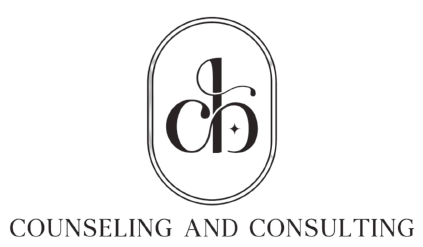Mental Health Blog

What OCD Really Feels Like
What’s It Really Like to Live with OCD?
(Hint: It’s Not About Loving Clean Kitchens)
Let’s cut through the clichés.
Obsessive-Compulsive Disorder isn’t about being “super tidy” or liking things color-coded. That’s personality. That’s preference. OCD is something else entirely—a brutal, relentless mind loop that hijacks your thoughts and convinces you of the terrifying, the absurd, and the impossible.

Intrusive Thoughts: The Uninvited Guests
Living with OCD is like trying to go about your day while a fire alarm blares in your head—and everyone around you keeps asking why you look stressed.
You might be walking to work when suddenly your brain shouts:
“What if I just shoved that person into traffic?”
You’re not violent. You’re horrified by the thought. But it won’t leave. OCD doesn’t whisper—it yells. Over and over. And it wants an answer.
To quiet the chaos, your brain throws you a lifeline: a compulsion. A ritual. Maybe you count. Maybe you pray. Maybe you Google “Can thoughts be crimes?” again, even though you know you’ve done it five times already. You get a moment of relief… and then the loop restarts.
It’s Not Just Germs and Light Switches
Yes, some people with OCD wash their hands a lot. But the condition has way more channels than just the “contamination” one. Think of OCD like a haunted Netflix account where every genre is psychological horror. Here are a few:
Existential OCD: “What if none of this is real?”
Relationship OCD (ROCD): “Do I really love my partner? What if I’m faking it?”
Moral OCD: “What if I’m actually a bad person and just don’t know it?”
Mental Review OCD: Replaying conversations over and over to make sure you didn’t say something offensive.
Sexual or Violent OCD: Intrusive thoughts about things that deeply violate your values and make you question who you are.
Here’s the catch: these aren’t passing curiosities. OCD demands certainty—and certainty is a scam. There’s never enough reassurance, never enough checking, never enough Googling.
The Doubt Never Sleeps
OCD is doubt on steroids. You can’t just “let it go.” Your brain won’t let you. It asks:
“Are you sure you locked the door?”
“Are you sure that was just a thought and not a desire?”
“Are you sure you’re not secretly evil?”
It’s like being trapped in a courtroom where you’re both the defendant and the paranoid prosecutor. You second-guess your memory, your morality, your identity. All day. Every day.
You Look Fine—But You’re Drowning
From the outside, people with OCD often look functional. High-achieving. Normal. But inside, they might be fighting a mental warzone no one else can see.
They might be stuck in compulsions for hours—replaying, checking, apologizing, avoiding. But because it’s invisible, people don’t get it. They say things like:
“Just stop thinking about it.”
“Everyone gets anxious.”
“You worry too much.”
So you learn to hide it. You smile. You nod. And you carry the chaos in silence.
Can It Get Better? Yes. But Not by Playing Nice.
Treating OCD isn’t about avoiding triggers or calming down. It’s about facing the fear head-on. There’s a therapy called Exposure and Response Prevention (ERP)—and it’s basically the emotional equivalent of walking through fire.
You get exposed to your scariest thoughts without doing the compulsion. You don’t check. You don’t confess. You let the anxiety sit there like an uninvited guest—and eventually, it stops yelling.
It’s brutal. But it works. Because you learn something powerful: a thought is just a thought. Discomfort isn’t danger. And you don’t need to control everything to be okay.
Final Words (Not the Compulsive Kind)
OCD isn’t a personality quirk. It’s not a meme. It’s a legit mental health condition that demands understanding, not punchlines.
If you’re someone living with OCD, or love someone who is: know this—what they’re dealing with is real, intense, and invisible. And yet, they still show up. Still smile. Still keep going.
That takes serious courage.
So if your brain’s lying to you 100 times a day? Don’t believe it. You’re not broken. You’re battling something incredibly hard with nothing but your mind—and that’s a kind of strength most people will never see.
💬 You’re navigating a disorder that demands certainty where none exists—and that’s no small feat.
If you’re ready to understand your mind a little better, to gently challenge the fear instead of obey it, we created something for you.
🌀 The OCD Workbook is a guided space designed by a licensed therapist to help you untangle intrusive thoughts, break free from compulsions, and build trust in yourself—step by step.
It’s not about fixing you. It’s about supporting you as you heal on your terms.
💛 You deserve tools that meet you where you are.
Start your next step here → A Therapist Toolkit Obsessive-Compulsive Disorder (OCD)

Disclaimer: The content in our blogs are for informational purposes only and should not be considered a substitute for professional mental health advice, diagnosis, or treatment. Always consult with a qualified mental health professional for personalized guidance and care. In case of a mental health crisis or emergency, please call emergency services immediately.

© 2023 All Rights Reserved
We are offering services online via Telehealth
(614) 957-3321
Hours: Monday-Friday 9:00am-6:00pm

© 2023 All Rights Reserved

